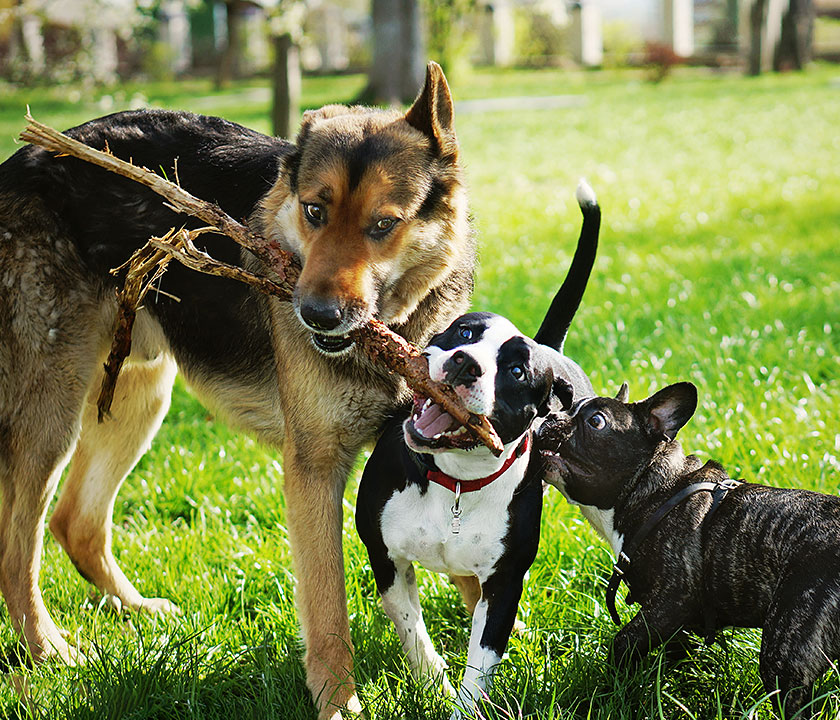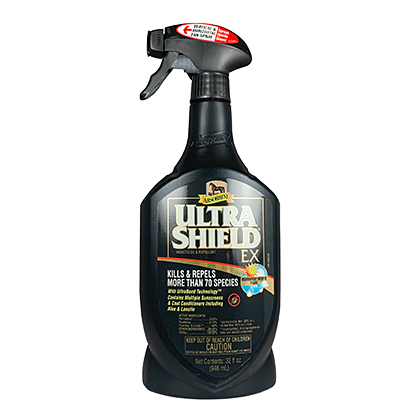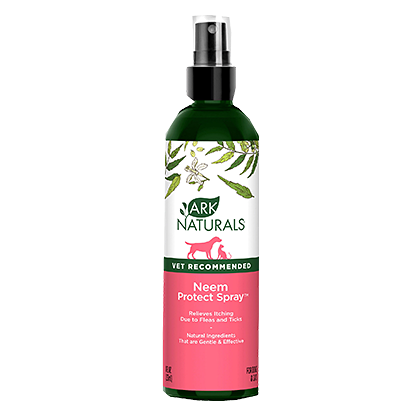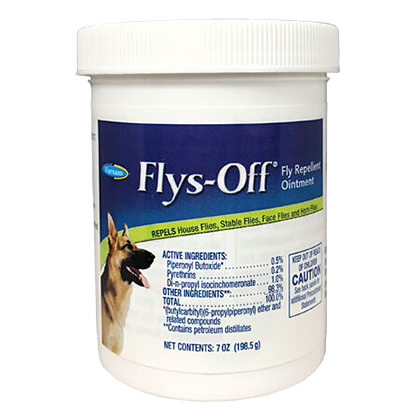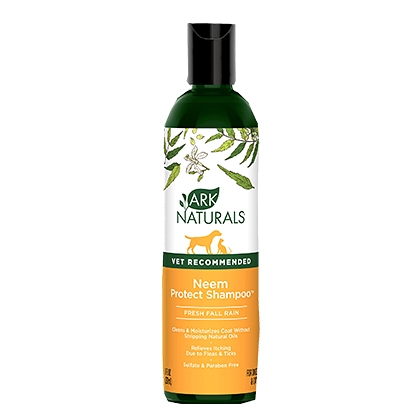What is Fly Control for Pets?
Fly control protects pets from itchy bites - and the spread of disease.
There are hundreds of species of flies that attack dogs, cats, and horses.
Animals that spend time outside, whether they live in outdoor quarters, work on a farm, or even just spend a few hours a day outside are susceptible to pests.
Most of the time, fly bites are uncomfortable, but relatively harmless. After a bite, your pet may itch or feel pain for a day or two at most. Sometimes, though, flies spread serious infection and disease, or cause adverse reactions and complications that can be a threat to your pet's health.
Biting flies like mosquitoes and black flies feed on blood. When they bite, they expose their host to proteins in their saliva that may cause an itchy reaction, and they can also spread disease-causing viruses and bacteria.
Flies can also spread parasites, for example, mosquitoes that spread heartworm disease to dogs and cats.
Non-biting flies like gnats, face flies, and house flies may not leave pets with itchy bites, but they can be just as harmful. Non-biting flies are attracted to warm, moist areas of the body like the mouth, genitals, and open wounds.
They feed off saliva, mucus, and other body fluids, sometimes causing infection by introducing bacteria and viruses to vulnerable areas of the body.
Pests like screw worms, bot flies and blow flies must reproduce on or inside their host. Bot flies deposit eggs into their host as they bite and take in a blood meal.
Other pests seek moist areas, especially open wounds and existing bug bites, and lay eggs directly on their host, causing a potentially fatal condition called flystrike.
Highly Effective Fly Control For Pets
Flies of all kinds are a crucial part of our ecosystem, and they're incredibly persistent opportunists, reproducing more rapidly then you can get rid of them. While it's not possible to completely eliminate pests from your pet's environment, an effective fly control protocol can help your pet stay healthy and comfortable when they're outdoors.
Keep flies at bay with effective fly control:
- Eliminate fly breeding grounds by cleaning up manure, eliminating standing water, and disposing of leaf litter, wood piles, and other materials that harbor pests.
- Use a topical pet fly control product that kills and/or repels pests on pets
- Apply outdoor and perimeter fly control products that eliminate pests outdoors in areas like barns, sheds, dog runs, dog houses, yards, and gardens.
- Treat indoor areas like bedding, carpets, baseboards, as well as attics and basements, eliminating any water leaks that may attract flies.
- Protect open wounds with coverings or fly repelling wound ointment
By removing water sources, food sources, and breeding grounds, and using pet-friendly pest control products, you can control the fly population in your pet's environment.
In the meantime, make an appointment with your veterinarian if your pet shows signs of infection, illness, or other complications, or if you're not seeing results with your current fly protection.
Effective Fly Control, Delivered.
PetMeds® carries topical fly control products, flea and tick preventatives, home and yard treatments, natural, plant-based solutions, and more to help protect your pets and your home against flies.
Get everything you need delivered to your doorstep.
Never Miss A Dose With PetMeds® AutoShip
Save 35% OFF your first AutoShip order | Use code SAVE35 in cartFrequently Asked Questions about Fly Control for Pets
Still have questions? Learn more with our free Pet Health Advice resource center or talk to your veterinarian about fly control for pets.




























